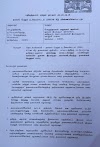New Delhi: Salaries and pensions for former and current central government employees will go up by nearly 24%.
- The move will benefit an estimated 10 million government employees including nearly 60 lakh pensioners - starting from January 1, 2016.
- While salaries and allowances have been raised by 23.5%, pensions will increase by 24%.
- The raises - smaller than past increases- will cost the government about one lakh crores.
- While this cost is a whopping 0.7 percent of India's GDP, the hike is the lowest in the last seven decades.
- The new allowances and hikes were cleared by the cabinet today and are based on the recommendations of the Seventh Pay Commission - a government committee reviews the pay of government employees every decade.
- So government workers get a hefty wage hike every 10 years, a populist wage policy that dates back to independence, in addition to half-yearly and annual increments linked to prices.
- Under the new scheme, the maximum salary for a government servant will be about 2.5 lakhs a month, that's more than double the top-rung pay of Rs. 90,000 a month. The least a government officer can now be paid is Rs. 18,000 a month, more than double the current compensation of Rs. 7,000 offered to the most junior employees.
- The government is counting on the higher salaries to result in more consumer spending which could trigger economic growth.
- However, some experts believe that the additional cash in the market could fuel inflation. To keep a check on price rise driven by greater liquidity in the market, the government plans to keep a close eye on the market
- A Finance Ministry source, speaking on the condition of anonymity, told NDTV, "Government employees are traditionally known to invest pay comm benefits into few specific sectors like real estate. If they follow this tradition, the real estate sector hit by poor demand may turn out to be the biggest beneficiary."








